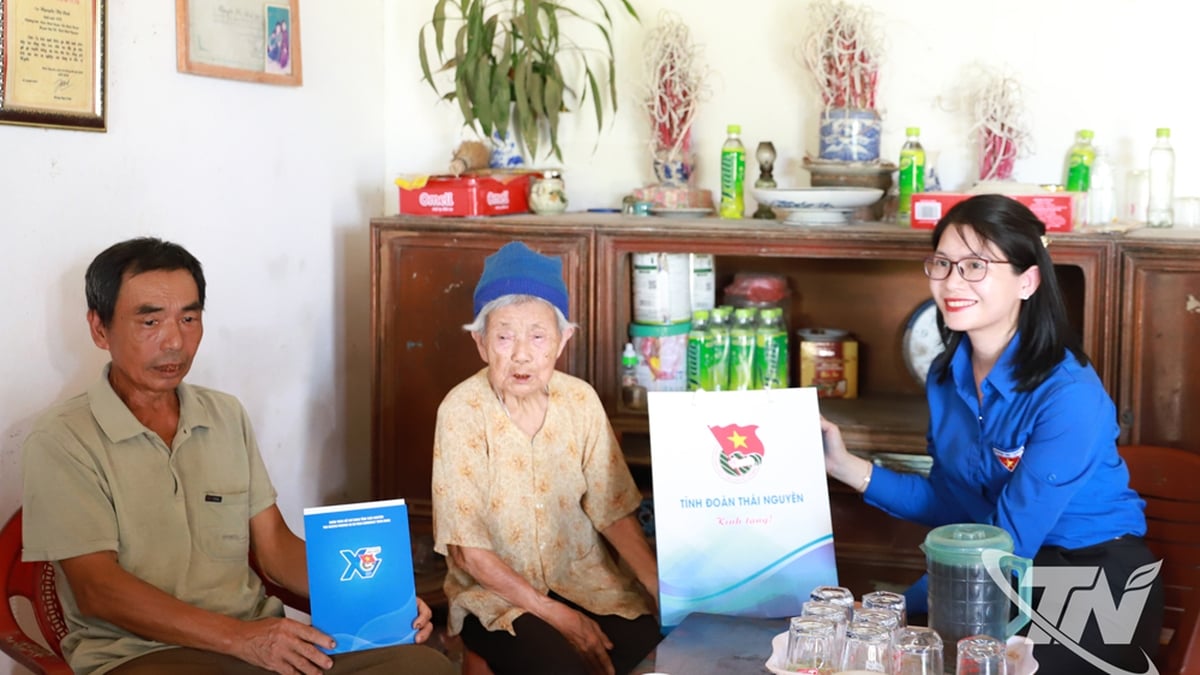 |
| Increasing the time of drug delivery creates convenience for patients. |
Easing the stress on people with chronic illnesses
For many years, according to Circular No. 52/2017/TT-BYT of the Ministry of Health , chronic patients are only prescribed medication for a maximum of 30 days. This forces patients, even when their treatment is stable, to return to the hospital every month just to receive medication, causing a lot of inconvenience and waste. Many elderly people and people living in remote areas have encountered many difficulties in traveling, queuing, and waiting to be examined and given medication.
This change is expected to bring many practical benefits to patients and the health system. Accordingly, at Xanh Pon General Hospital (Hanoi), the model of providing medicine every two months has been piloted since November 2024. After more than half a year of implementation, about 2,300 chronic patients have registered to participate, of which up to 97% of patients maintain stable treatment without needing early re-examination. Only 3% of patients have to return to the hospital due to side effects or unusual symptoms. This pilot model is considered successful and can be replicated nationwide.
From 2025, chronic patients with stable treatment can be prescribed medication for up to 90 days. The pilot model in Hanoi showed that 97% of patients responded well. The applicable list includes more than 200 diseases, such as high blood pressure, diabetes, HIV, Alzheimer's... Health insurance will also cover 100% of initial medical examination and treatment nationwide, without the need for referral papers for serious illnesses.
According to the survey, patients expressed satisfaction when receiving long-term medication. Not having to travel many times, reducing waiting time, saving costs and increasing initiative in personal health care are the obvious benefits that this policy brings.
Mr. Vuong Anh Duong, Deputy Director of the Department of Medical Examination and Treatment Management under the Ministry of Health, said that extending the prescription period for chronic patients who have been treated stably is completely feasible. During the Covid-19 pandemic, the Ministry of Health allowed the application of providing medicine every three months to limit crowds in hospitals, and the results recorded were that the rate of patients requiring medication adjustments or experiencing complications was very low, only about three percent.
The list of diseases considered for long-term drug provision policy is very diverse, including not only common diseases such as hypertension, diabetes, chronic obstructive pulmonary disease, mental disorders but also more than two hundred other diseases in many specialties.
However, not all patients in the list are prescribed a 3-month prescription by default. The prescription will be based on the treating physician's assessment of the patient's disease stability, ability to comply with the treatment regimen, and self-monitoring conditions at home. The prescription period can be 30, 69, or 90 days depending on each specific case. The physician is responsible for the prescription decision, and is also responsible for advising and guiding the patient to recognize abnormal signs for timely treatment.
The Ministry of Health said it had collected opinions from more than 20 end-line hospitals in many different specialties, and conducted an assessment through a professional council to develop a scientific, reasonable and safe list of diseases. Factors such as the ability to store drugs at home, the risk of disease progression or complications, treatment costs and feasibility in implementation in localities were all carefully considered...
More convenient for people to access health services
In addition to increasing the time for prescribing drugs for health insurance patients in some diseases, from January 1, 2025, the health insurance policy system will also have many important changes. According to Circular No. 37/2024/TT-BYT of the Ministry of Health, the regulations on hospital classification in the list of health insurance drugs will be abolished. Medical examination and treatment facilities, regardless of technical level, can fully use the list of health insurance drugs in accordance with their scope of expertise and treatment instructions. This will contribute to improving the professional capacity of lower levels, reducing the burden on the central level and creating more favorable conditions for people to access health services.
This Circular also adds a provision allowing patients to be reimbursed for costs when they have to buy medicine or medical equipment from outside because the medical facility does not have the medicine on the list. With just a valid invoice and confirmation from the hospital, patients will be paid the corresponding costs without being disadvantaged.
Circular No. 39/2024/TT-BYT also provides many new regulations on the use and payment of health insurance drugs. The drug list has been updated, adding drugs to treat rare diseases, drugs for children and the elderly. The principle of "correct, sufficient and reasonable" in drug use is applied to ensure effective treatment and save resources. The payment process has also been improved to shorten the time for processing records, helping health insurance participants receive benefits sooner.
One of the notable points is that from 2025, people will be covered by the health insurance fund for 100% of medical examination and treatment costs at primary medical examination and treatment facilities nationwide, regardless of location. For inpatient treatment at primary facilities, the payment level will also be kept at the maximum level. Particularly, serious diseases such as cancer, lupus erythematosus, organ transplants, strokes and other serious diseases will be fully covered by the health insurance fund when patients are treated at specialized hospitals without the need for a referral.
The new policy not only brings convenience to people with chronic diseases but also marks a step forward in administrative reform, optimizing medical resources and improving the quality of health care for the people.
Source: https://baodautu.vn/nhung-quy-dinh-moi-co-loi-cho-benh-nhan-bao-hiem-y-te-d314627.html





































































































Comment (0)